 Produced by Guest blogger
Produced by Guest blogger
I chose to study BSc (Hons) Ecology & Wildlife and Conservation at Bournemouth University as I found the course to be an excellent broad overview of many topics surrounding environmentalism and conservation. It offers knowledge in a range of fields that will allow you to narrow your focus of study on a niche area that you find more specific to your individual values. Through this degree I focused my research more on marine conservation.
I always wanted to work abroad to gain further experience working with different cultures to explore all the avenues of the industry available to me. Working overseas has allowed me to see where environmental impacts are affecting which communities the most, how these impacts have manifested and how these impacts can be both locally and globally reduced and mitigated by working with local communities from fishermen to governing bodies.
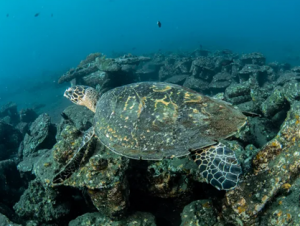
The opportunity to work at North Bali Conservation was presented to me by Rick Stafford, a recurring lecturer of mine throughout my studies at BU. The philosophy of the project is to enhance biodiversity recruitment in the local marine environment where once was a healthy coral reef ecosystem turned to an overexploited (from overfishing and destructive coral harvesting) barren marine desert absent of marine life. The enhancement begins by the introduction of artificially created habitats that are made to mimic previous natural substrate that we know can host aquatic life.
Additionally, to the fundamental operations of the project, I arrived at, luckily, the right time as the project was undergoing a turtle hatchery programme where they had set up an artificial incubator and built-in beach hatchery to house sea turtle eggs that were found on the local beaches. These turtle eggs were placed at the hatcheries to reduce the risk of poaching. Each day we maintained the hatcheries by cleaning the incubator tubes and in the morning’s, we had the job of handling, re-housing and releasing these special and endangered turtles.
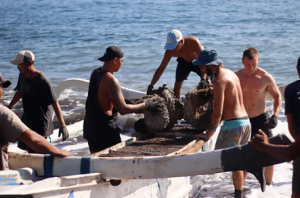
This whole opportunity was made available to me through the Turing Scheme, without the funding offered to me I don’t think I would have been able to be a part of this project. The process of application was straight forward and the assistance available made the funding a care-free process and took a lot of stress from any travel plans I had to organise during my final year at Uni.
Settling in was easy as the project organises a pick-up from a local driver and takes you straight to camp. The accommodation set up is shared room with either all-boys or all-girls and living in this environment (like hostel vibes) is a great way to bond with your fellow volunteers. And you can hear the waves crashing as your nod off which is always a bonus. If you are considering this project, I hope you are an animal-lover as there are plenty of dogs who want to get to know you and walk you up the street to the local supermarket.
Getting to know the locals working with the project is a beautiful experience as they all make you feel super welcome even to a family level. I heavily encourage anyone to get involved with any local activities, especially volleyball games which seem to be the go-to sport around here. It is important to know that culture can differ nationally however, each people are beautiful and accepting but the way in which people live can differ slightly and so it is always important to approach each new setting as individual and with a very open mind to learn and not to hold old expectations on new experiences.
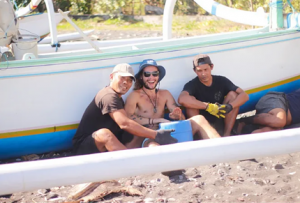
Going forward to my future career in marine conservation, I will take the knowledge and experience I have gained at North Bali Conservation and hope to integrate these skills into any new research/project in the future. I know this will help enhance the efforts of any conservation programmes so that the work being done is completed with utmost efficiency and success.
To learn and to teach go hand-in-hand in this field of work and anything you can individually bring to the table from past experiences will help protect, conserve and save our degrading natural systems.

 Why study BSc (Hons) Geography at BU
Why study BSc (Hons) Geography at BU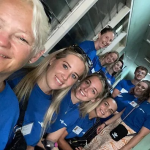 My nursing placement in Ghana through the Turing Scheme
My nursing placement in Ghana through the Turing Scheme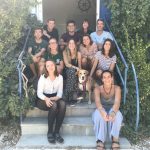 My international work placement in Greece
My international work placement in Greece My placement experience in India
My placement experience in India








